第56章 READING AND STUDYING(2)
Go back,haughty Southron!Go back!for thy gold Is red with the blood of the hearts thou hast sold!"There was in this volume another poem which is not in any of the later editions,the impression of which,as it remains to me in broken snatches,is very beautiful.It began with the lines "Bind up thy tresses,thou beautiful one,Of brown in the shadow,and gold in the sun."It was a refreshment and an inspiration to look into this book between my long rows of figures,and read such poems as "The Angel of Patience,""Follen,""Raphael,"and that wonderfully rendered "Hymn"from Lamartine,that used to whisper itself through me after I had read it,like the echo of a spirit's voice:--"When the Breath Divine is flowing,Zephyr-like o'er all things going,And,as the touch of viewless fingers,Softly on my soul it lingers,Open to a breath the lightest,Conscious of a touch the slightest,--Then,O Father,Thou alone,>From the shadow of thy throne,To the sighing of my breast And its rapture answerest."I grew so familiar with this volume that I felt acquainted with the poet long before I met him.It remained in my desk-drawer for months.I thought it belonged to my poetic friend,the baler of cloth.But one day he informed me that it was a borrowed book;he thouht,however,he should claim it for his own,now that he had kept it so long.Upon which remark I delivered it up to the custody of his own conscience,and saw it no more.
One day,towards the last of my stay at Lowell (I never changed my work-room again),this same friendly fellow-toiler handed me a poem to read,which some one had sent in to us from the count-ing-room,with the penciled comment,"Singularly beautiful."It was Poe's "Raven,"which had just made its first appearance in some magazine.It seemed like an apparition in literature,indeed;the sensation it created among the staid,measured lyrics of that day,with its flit of spectral wings,and its ghostly refrain of "Nevermore!"was very noticeable.Poe came to Lowell to live awhile,but it was after I had gone away.
Our national poetry was at this time just beginning to be well known and appreciated.Bryant had published two volumes,and every school child was familiar with his "Death of the Flowers"and "God's First Temples."Some one lent me the "Voices of the Night,"the only collection of Longfellow's verse then issued,Ithink.The "Footsteps of Angels"glided at once into my memory,and took possession of a permanent place there,with its tender melody."The Last Leaf"and "Old Ironsides"were favorites with everybody who read poetry at all,but I do not think we Lowell girls had a volume of Dr.Holmes's poems at that time.
"The Lady's Book"and "Graham's Magazine"were then the popular periodicals,and the mill-girls took them.I remember that the "nuggets"I used to pick out of one or the other of them when Iwas quite a child were labeled with the signature of Harriet E.
Beecher."Father Morris,"and "Uncle Tim,"and others of the delightful "May-Flower"snatches first appeared in this way.
Irving's "Sketch-Book"all reading people were supposed to have read,and I recall the pleasure it was to me when one of my sisters came into possession of "Knickerbocker's History of New York."It was the first humorous book,as well as the first history,that I ever cared about.And I was pleased enough--for Iwas a little girl when my fondness for it began--to hear our minister say that he always read Diedrich Knickerbocker for his tired Monday's recreation.
We were allowed to have books in the cloth-room.The absence of machinery permitted that privilege.Our superintendent,who was a man of culture and a Christian gentleman of the Puritan-school,dignifed and reserved,used often to stop at my desk in his daily round to see what book I was reading.One day it was Mather's "Magnalia,"which I had brought from the public library,with a desire to know something of the early history of New England.He looked a little surprised at the archaeological turn my mind had taken,but his only comment was,"A valuable old book that."It was a satisfaction to have a superintendent like him,whose granite principles,emphasized by his stately figure and bearing,made him a tower of strength in the church and in the community.
He kept a silent,kindly,rigid watch over the corporation-life of which he was the head;and only those of us who were incidentally admitted to his confidence knew how carefully we were guarded.
We had occasional glimpses into his own well-ordered home-life,at social gatherings.His little daughter was in my infant Sabbath-school class from her fourth to her seventh or eighth year.She sometimes visited me at my work,and we had our frolics among the heaps of cloth,as if we were both children.She had also the same love of hymns that I had as a child,and she would sit by my side and repeat to me one after another that she had learned,not as a task,but because of her delight in them.One of my sincerest griefs in going off to the West was that I should see my little pupil Mary as a child no more.When I came back,she was a grown-up young woman.
My friend Anna,who had procured for me the place and work besideher which I liked so much,was not at all a bookish person,but we had perhaps a better time together than if she had been.
She was one who found the happiness of her life in doing kindnesses for others,and in helping them bear their burdens.
Family reverses had brought her,with her mother and sisters,to Lowell,and this was one strong point of sympathy between my own family and hers.It was,indeed,a bond of neighborly union between a great many households in the young manufacturing city.